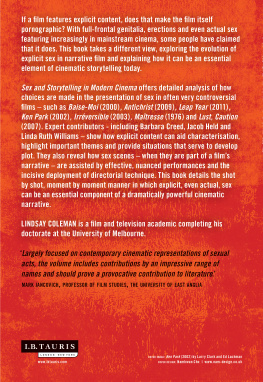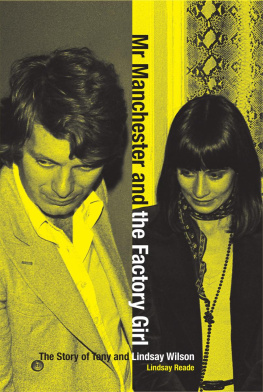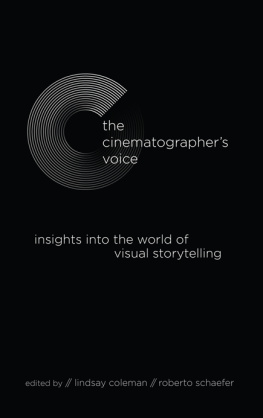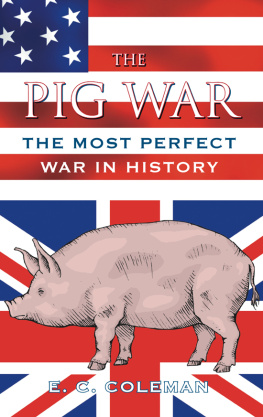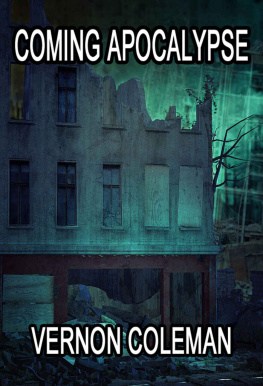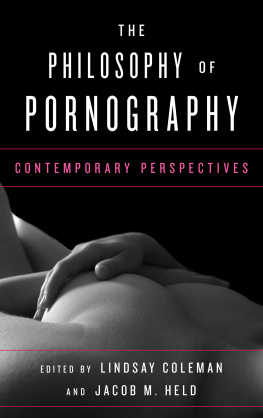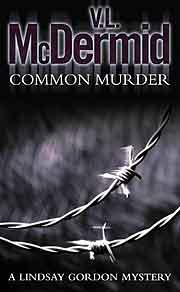Coleman Lindsay - Sex and Storytelling in Modern Cinema
Here you can read online Coleman Lindsay - Sex and Storytelling in Modern Cinema full text of the book (entire story) in english for free. Download pdf and epub, get meaning, cover and reviews about this ebook. year: 2016, publisher: Bloomsbury UK, genre: Romance novel. Description of the work, (preface) as well as reviews are available. Best literature library LitArk.com created for fans of good reading and offers a wide selection of genres:
Romance novel
Science fiction
Adventure
Detective
Science
History
Home and family
Prose
Art
Politics
Computer
Non-fiction
Religion
Business
Children
Humor
Choose a favorite category and find really read worthwhile books. Enjoy immersion in the world of imagination, feel the emotions of the characters or learn something new for yourself, make an fascinating discovery.
- Book:Sex and Storytelling in Modern Cinema
- Author:
- Publisher:Bloomsbury UK
- Genre:
- Year:2016
- Rating:4 / 5
- Favourites:Add to favourites
- Your mark:
- 80
- 1
- 2
- 3
- 4
- 5
Sex and Storytelling in Modern Cinema: summary, description and annotation
We offer to read an annotation, description, summary or preface (depends on what the author of the book "Sex and Storytelling in Modern Cinema" wrote himself). If you haven't found the necessary information about the book — write in the comments, we will try to find it.
Sex and Storytelling in Modern Cinema — read online for free the complete book (whole text) full work
Below is the text of the book, divided by pages. System saving the place of the last page read, allows you to conveniently read the book "Sex and Storytelling in Modern Cinema" online for free, without having to search again every time where you left off. Put a bookmark, and you can go to the page where you finished reading at any time.
Font size:
Interval:
Bookmark:

Lindsay Coleman is a film and television academic completing his doctorate at the University of Melbourne. The books he has contributed to include The War Body on Screen , Taking South Park Seriously and Gilmore Girls and the Politics of Identity . He has also served as Editor on the anthology The Philosophy of Pornography .
It is commonly claimed that pornographic films havent got convincing narratives. Normally, this is meant as a criticism, but others have responded that this misses the point that pornographic films are not meant to act narratively. The current volume offers an alternative to both of these claims and examines the relationship between sex and storytelling in a range of different ways. Largely focused on contemporary cinematic representations of sexual acts, the volume includes contributions by an impressive range of names and should prove a provocative contribution to literature.
Mark Jancovich, Professor of Film Studies, The University of East Anglia
Dedicated to my love Sarah and our little darling Audrey
Barbara Creed |
Jacob M. Held |
Deborah Walker-Morrison |
Lisa Coulthard and Chelsea Birks |
Linda Ruth Williams |
Sean Redmond |
Beth Johnson |
David Andrews |
Torben Grodal |
Claire Hines |
Taine Duncan |
David Andrews is an independent scholar who specializes in film genre. He is the author of Theorizing Art Cinemas: Foreign, Cult, Avant-Garde, and Beyond (University of Texas, 2013) and Soft in the Middle: The Contemporary Softcore Feature in its Contexts (Ohio State, 2006). Andrews is now working with Oxford University Press on a manuscript entitled Rape-Revenge: Biocultural Investigations . He lives in Chicago, Illinois (USA).
Chelsea Birks is a PhD student at the University of Glasgow. She wrote her MA thesis at the University of British Columbia on Jean-Luc Nancy and European new extremist cinema. Her research interests include film philosophy, contemporary French cinema and violence, and she was the co-editor (with Dana Keller) of issue 8.2 of Cinephile on the topic of contemporary extremism. She will be writing her dissertation on cinematic excess and Georges Bataille.
Lisa Coulthard is an associate professor of Film Studies at the University of British Columbia. Her research focuses on violence, cinematic extremism, and film theory. She is currently completing a book on sound and the films of Quentin Tarantino. Her recent publications include Haptic Aurality: Resonance, Listening and Michael Haneke, Dirty Sound: Noise in New Extremism, Interrogating the Obscene: Extremism and Michael Haneke, and Uncanny Horrors: Male Rape in Bruno Dumonts Twentynine Palms .
Barbara Creed is Professor of Screen Studies in the School of Culture & Communication at the University of Melbourne. She is a member of the Australian Academy of the Humanities. Barbara has spoken and published widely in the area of film and visual cultures and more recently in animal studies. Her books include The Monstrous-Feminine: Film, Feminism, Psychoanalysis , Phallic Panic: Film, Horror and the Primal Uncanny and Darwins Screens: Evolutionary Aesthetics, Time and Sexual Display in the Cinema . She is currently carrying out research in two related areas: animals and the emotions and the cinema of human rights. She is Director of HRAE Human Rights & Animal Ethics Research Network.
Taine Duncan is an assistant professor of philosophy and director of the Gender Studies programme at the University of Central Arkansas. She works with critical theories of all kinds, from Rosi Braidotti to Jrgen Habermas to George Yancy. Her research focuses on solidarity and how to conceptualize emancipation beyond difference. Part of this research has included publications using art and culture to think through philosophical issues. Recent publications in this area include What Kind of Men are Larry and Jeff? in Curb Your Enthusiasm and Philosophy: Awaken the Social Assassin Within (2012) and two forthcoming chapters: Of Mice and (Posthu)Man: Roald Dahls The Witches and Ethics Beyond Humanism in Roald Dahl and Philosophy (2014); and Utopic Futures of the Other: Pornography and the Creative Imaginary in Pornography: An Interdisciplinary Survey (forthcoming).
Torben Grodal is Professor Emeritus at the Department of Media, Cognition, and Communication at the University of Copenhagen. In addition to having written books and articles on literature he has authored Moving Pictures. A New Theory of Genre, Feelings, and Emotions , Embodied Visions: Evolution, Emotion, Culture and Film ; an advanced introduction to film theory in Danish, Filmoplevelse and edited Visual Authorship . He has also published a series of articles on film, emotions, narrative theory, art films, video games and evolutionary film theory. He is currently working on a theoretical description of crime fiction and on a general theory on the relations between brain and narrative.
Jacob M. Held is Associate Professor of Philosophy in the Department of Philosophy and Religion at the University of Central Arkansas. His primary research interests focus on legal and political theory, nineteenth-century German philosophy, and applied ethics. In addition, he works extensively at the intersection of philosophy and popular culture, most recently editing, Roald Dahl and Philosophy: A Little Nonsense Now and Then .
Claire Hines is Senior Lecturer in Film and Television at Southampton Solent University, UK. She is co-author of Fantasy and co-editor of Hard to Swallow: Hard-core Pornography on Screen , and her research and publications focus on James Bond, mens magazines, and representations of gender and sexuality on screen.
Beth Johnson is a senior lecturer in Film, Television and Visual Theory at Keele University, UK. She is the author of various articles in journals such as Angelaki and Screen and her book chapters include Shortbus: Highbrow Hard-core in Hard to Swallow: Hard-core Pornography On Screen , Sex, Psychoanalysis and Sublimation in Dexter in Investigating Dexter: Cutting Edge Television (I.B.Tauris, 2010) and Realism, Real Sex and the Experimental Film: Mediating New Erotics in Georges Batailles Story of the Eye in Realism and the Audiovisual Media . Beth has recently co-edited a collection entitled Television, Sex and Society: Analyzing Contemporary Representations and has published a monograph on British television auteur Paul Abbott as part of The Television Series.
Sean Redmond is an associate professor of Media and Communication at Deakin University, Melbourne, Australia. He writes on stardom and celebrity, science fiction, screen aesthetics, and film authorship. He edits the journal Celebrity Studies , and his latest books, Celebrity and the Media , and The Cinema of Takeshi Kitano: Flowering Blood , were both published in 2013.
Deborah Walker-Morrison teaches French language, cinema and translation at the University of Auckland, New Zealand. Her research interests and publications are wide-ranging, including French and American film noir, the cinema of Alain Resnais, the translation and reception of indigenous Pacific film and literature, and gender and sexuality in contemporary French cinema. She has authored Le style cinmatographique dAlain Resnais, de Hiroshima mon amour (1959) aux Herbes folles (2009), and co-authored (with Alistair Rolls) French and American Noir: Dark Crossings .
Linda Ruth Williams is Professor of Film in the English Department at Southampton University, UK. She is the author of four books including The Erotic Thriller in Contemporary Cinema (2005) and Sex in the Head: Visions of Femininity and Film in D.H. Lawrence (1993), and is the editor of other titles including Contemporary American Cinema (co-edited with Michael Hammond, 2006). She has written widely on censorship, pornography, gender and culture in edited collections and journals including Screen and Cinema Journal , and has also written for the British Film Institute magazine Sight and Sound .
Font size:
Interval:
Bookmark:
Similar books «Sex and Storytelling in Modern Cinema»
Look at similar books to Sex and Storytelling in Modern Cinema. We have selected literature similar in name and meaning in the hope of providing readers with more options to find new, interesting, not yet read works.
Discussion, reviews of the book Sex and Storytelling in Modern Cinema and just readers' own opinions. Leave your comments, write what you think about the work, its meaning or the main characters. Specify what exactly you liked and what you didn't like, and why you think so.

